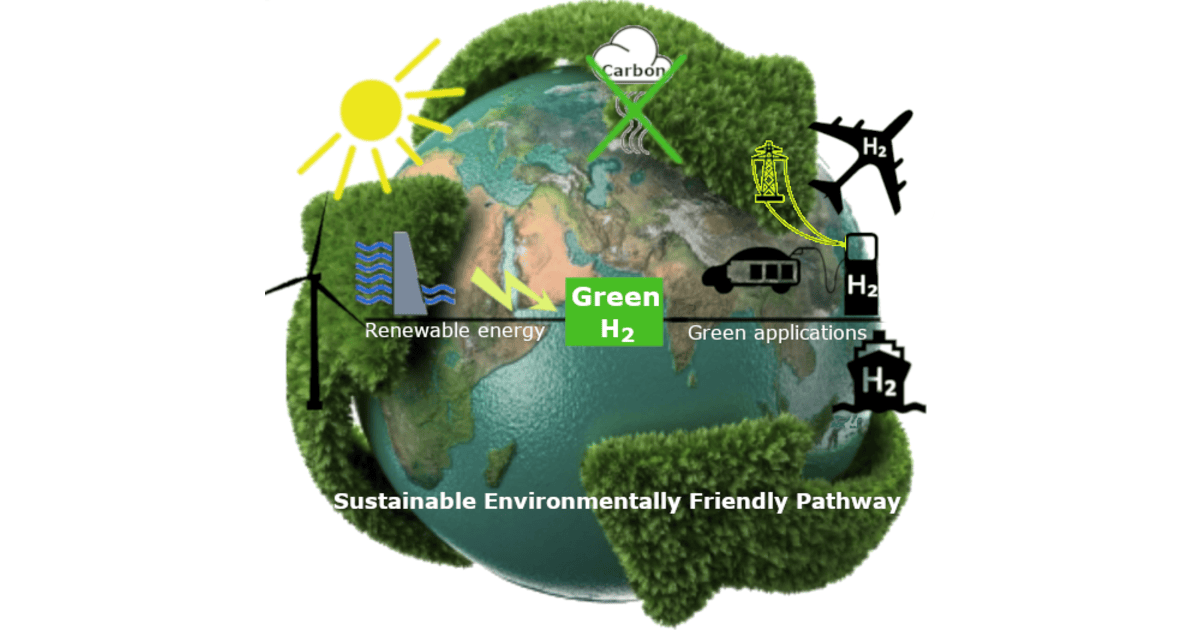Advances in Green Hydrogen Production and Applications
A special issue of Energies (ISSN 1996-1073). This special issue belongs to the section "A5: Hydrogen Energy".
Deadline for manuscript submissions: 10 February 2026 | Viewed by 196

Special Issue Editor
Special Issue Information
Dear Colleagues,
One of the most prevalent problems facing society today is the need for reliable sources of energy without the disadvantages of finite supply and environmental impairment. Hydrogen (H2) is one of the more promising solutions to this enduring challenge, as it is a fuel with a very-high energy density, pollution-free combustion, and, more importantly, “green” methods available for its production that are based on renewable energy sources (e.g., the use of electricity or light from renewable sources for water splitting). “Green hydrogen production” is a key component in sustainable future planning (especially with seawater splitting), along with the promising applications that exist for this fuel, such as hydrogen combustion technologies, fuel cells (which can produce electricity without the need for combustion and without undesirable by-products), and others. Such technologies can be utilized for transportation (commercial vehicles, marine transportation, and aviation), distributed electricity/heating and energy storage applications. Therefore, a renewable chain can be established, starting with freely available and theoretically unlimited sources, leading to the production of a potent environmentally friendly fuel (aka “green” H2), and concluding with its utilization in necessary applications, removing the dependence on finite and toxic energy sources.
The aim of this Special Issue is to gather and present the most recent advances that concern “green” methods of hydrogen production and the subsequent applications of the produced fuel, covering all stages of this path from the design of the production methods to the efficiency of the hydrogen-utilizing applications.
Topics of interest in this Special Issue include, but are not limited to, the following:
- All aspects of the chemistry behind water splitting, especially regarding the novel route of utilizing seawater as a source.
- Electrochemistry (and photo-electrochemistry) for water splitting powered by natural sources.
- Light-activated processes: photolysis and photocatalysis for aqueous hydrogen evolution reactions using natural (or artificial) light.
- Thermo-chemical techniques for water splitting (including solar–thermal methods).
- Biological processes of hydrogen generation (biophotolysis, photofermentation, etc.).
- Multi-component green hydrogen production systems (e.g., solar-powered photovoltaics as an electricity source for hydrogen production systems).
- The role of materials in water splitting via different technologies—from electrolytic electrode films to photocatalytic nano-powders.
- Hydrogen fuelling stations (HFSs): design and optimization of integrated hydrogen production, storage, and fuel cell systems.
- Hydrogen combustion (in internal combustion engines of either type, gas turbines, etc.) for energy production and other applications.
- Transportation using hydrogen as a fuel (from commercial cars to airplanes).
- Hydrogen fuel cells: design and optimization.
- Electricity distribution through green hydrogen-powered systems.
- Computational approaches to system design for hydrogen production technologies and subsequent applications, as well as related material synthesis methods.
Dr. George V. Belessiotis
Guest Editor
Manuscript Submission Information
Manuscripts should be submitted online at www.mdpi.com by registering and logging in to this website. Once you are registered, click here to go to the submission form. Manuscripts can be submitted until the deadline. All submissions that pass pre-check are peer-reviewed. Accepted papers will be published continuously in the journal (as soon as accepted) and will be listed together on the special issue website. Research articles, review articles as well as short communications are invited. For planned papers, a title and short abstract (about 100 words) can be sent to the Editorial Office for announcement on this website.
Submitted manuscripts should not have been published previously, nor be under consideration for publication elsewhere (except conference proceedings papers). All manuscripts are thoroughly refereed through a single-blind peer-review process. A guide for authors and other relevant information for submission of manuscripts is available on the Instructions for Authors page. Energies is an international peer-reviewed open access semimonthly journal published by MDPI.
Please visit the Instructions for Authors page before submitting a manuscript. The Article Processing Charge (APC) for publication in this open access journal is 2600 CHF (Swiss Francs). Submitted papers should be well formatted and use good English. Authors may use MDPI's English editing service prior to publication or during author revisions.
Keywords
- hydrogen production
- renewable energy
- green hydrogen
- water splitting
- electrolysis
- electrocatalysis
- photocatalysis
- fuel cells
- hydrogen applications
- sustainable energy
Benefits of Publishing in a Special Issue
- Ease of navigation: Grouping papers by topic helps scholars navigate broad scope journals more efficiently.
- Greater discoverability: Special Issues support the reach and impact of scientific research. Articles in Special Issues are more discoverable and cited more frequently.
- Expansion of research network: Special Issues facilitate connections among authors, fostering scientific collaborations.
- External promotion: Articles in Special Issues are often promoted through the journal's social media, increasing their visibility.
- Reprint: MDPI Books provides the opportunity to republish successful Special Issues in book format, both online and in print.
Further information on MDPI's Special Issue policies can be found here.





